
- About
- News & Events
- Programs
- Students
- Faculty
Back to Top Nav
Back to Top Nav
Back to Top Nav
Back to Top Nav
The 2026 Law and Ethics fellowship program is a three-term fellowship that introduces students to the study and application of ethics and the law.
This fellowship program is a way to expand opportunities at Dartmouth to experience the camaraderie of sustained intellectual exploration and disagreement about questions of what is valuable, just, and ethical in personal, social, and political life. It is essential that fellows commit to attend all sessions (excepting students who will not be on campus in the summer term). The Institute plans to accept no more than 15 students. The fellowship program is open to all undergraduates from all academic backgrounds who have not yet participated in the program. When reviewing applications, we will give some priority to sophomores who will be on campus for all three terms, but welcome applications from all undergraduates.

Session 1
Welcome and Introductory Discussion with Professor Rose on the relationship between law and ethics, November 17 at 7:00pm.
Session 2
20250217-snow-campus-rg-161.jpg

As part of the annual faculty EI Winter Retreat, fellows attend a wide-ranging dinner discussion with invited scholars on ethical questions in contemporary political life, January 8 at 7:00pm.
Invited Scholars
Rahul Sagar (NYU)
Deva Woodly (Brown)
Rufaida Al Hashmi (University of Reading)
Jeremy Fix (University of Oxford)
Amandine Catala (Université du Québec à Montréal)
Session 3
john-pellettieri.jpg

Fellows attend a lunch discussion (January 26 at noon) with Attorney John M. Pellettieri. John M. Pellettieri is an attorney at Bredhoff and Kaiser. He represents clients in litigation matters at both the trial and appellate levels. John joined the firm from the United States Department of Justice, where he worked in the Appellate Section of the Criminal Division and served on details to the Office of Special Counsel Jack Smith and the United States Attorney's Office for the District of Maryland.

Session 4
Fellows attend a lunch discussion (February 13 at noon) with Alex Levitov. Alex Levitov is a managing director at K2 Integrity who works with financial institutions, technology firms, and jurisdictional authorities to identify, assess, and mitigate risks associated with money laundering, terrorist financing, bribery and corruption, sanctions evasion, and other forms of illicit financial activity. Discussion topic: Global Counter-Illicit Financial Regulation.
Session 5 and 6
profileimage.img_.jpg

Fellows attend a discussion session (April 23, 2:30-3:30pm) and lecture (April 23, 4:00-5:30pm) with the 2026 Roger S. Aaron lecturer, Juliet Schor. Schor is an economist and sociologist at Boston College whose research focuses on work, consumption, and climate change. Her lecture title is: "The Future of Work and the Four Day Week Movement."

Session 7 and 8
Fellows attend a discussion (May 21, 2:30-3:30pm) and lecture (May 21, 4:00-5:30pm) with Brandon Terry (Harvard) His lecture title is Shattered Dreams, Infinite Hope: A Tragic Vision of the Civil Rights Movement as part of the EI's New Books in Ethics, Politics, and Society Series. Terry is the John L. Loeb Associate Professor of the Social Sciences at Harvard University and the co-director of the Institute on Policing, Incarceration, and Public Safety at the Hutchins Center for African and African American Research.
As part of the annual faculty EI Summer Retreat, fellows attend a wide-ranging dinner discussion with invited scholars on ethical questions in contemporary political life. August 6 at 7:00pm.
Invited Scholars
Valerie Soon (UC San Diego)
Daniel Fryer (UMichigan Law)
Nazmul Sultan (Yale)
Debra Satz (Stanford)
Temi Ogunye (Princeton)
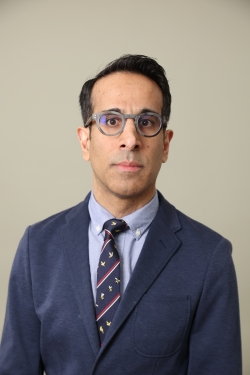
The 2025 Law and Ethics fellowship is a two term (winter and spring) program.
Session 1: What is the relationship between law and ethics? Supreme Court case discussion with Sonu Bedi, Joel Parker 1811 Professor in Law and Political Science, Hans '80 and Kate Morris Director of the Ethics Institute.
Supreme Court case Patrick D. Thompson v. United States, February 7, 2025, 6:30-8:00pm.
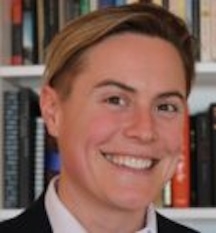
Session 2: What counts as sex discrimination? Discussion with Amanda Shanor, UPenn, Wharton, Legal Studies & Business Ethics Department, Assistant Professor of Legal Studies & Business Ethics, Wolpow Family Faculty Scholar.
Supreme Court case: U.S. vs. Jonathan Thomas Skrmetti Attorney General and Reporter for Tennessee. February 21, 2025, 6:30-8:00pm.
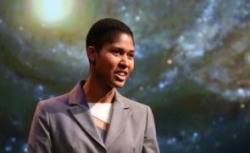
Session 3: How to advance earth justice? Fellow discussion with Danielle Wood, MIT, Director of MIT's cutting-edge Space Enabled Research Lab, "Space Enabled Earth Justice: Using Space Technology to Improve Life". April 21, 2025.
Session 4: Burt Dorsett '53 Lecture, "Space Enabled Earth Justice: Using Space Technology to Improve Life". April 21, 2025. Watch the lecture here.
Session 5:
jamal_greene.jpg
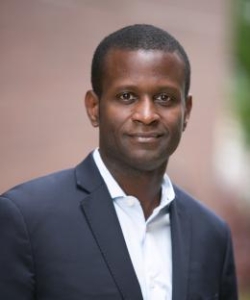
Session 6, Roger S. Aaron '64 Public Lecture, "How Rights Went Wrong", May 6, 2025. Watch the lecture here with your Dartmouth ID.
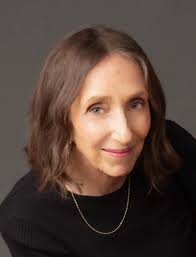
Session 7: How is the Scopes trial relevant today? Attend a public lecture with Brenda Wineapple, Columbia University, the author of, "Keeping the Faith: God, Democracy, and the Trial that Riveted a Nation." Date May 15, 2025. Watch the lecture here with your Dartmouth ID.
Session 8: Wrap up session with Professor Bedi, May 23, 6:30-8pm.
Winter Sessions
Session 1: January 19, 6:30-7:45pm
sonu.jpg
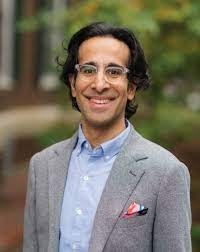
Is there a First Amendment right not to be blocked on social media? (Lindke v. Freed) (Sonu Bedi, Joel Parker 1811 Professor in Law and Political Science, Professor of Government, Hans '80 and Kate Morris Director of the Ethics Institute)
Session 2, February 9, 6:30-7:45pm
garre.jpg
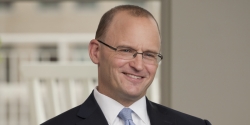
Is the bankruptcy of Purdue Pharma (the manufacturer of OxyContin) about law or ethics? (Harrington v. Purdue Pharma L.P.) Gregory Garre, Latham and Watkins,
Session 3: March 1, 6:30-7:45pm
altundal_professional_headshot54.png
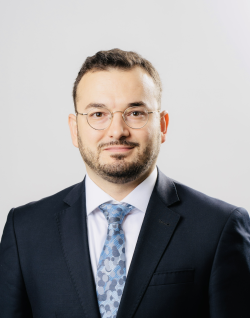
Is there a right to travel? A debate on international mobility and migration, New Research in Ethics, Ugur Altundal, Dorsett Postdoctoral Fellow, Dartmouth
Spring Sessions
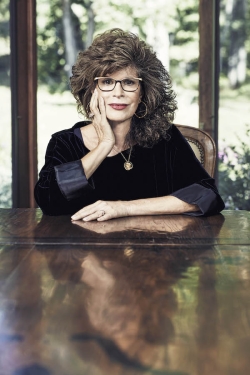
Sessions 4 and 5: April 29, 2024
What is surveillance capitalism? Shoshana Zuboff, Harvard Business School. Student discussion at 3pm, Burt Dorsett '53 lecture at 4:30.
Sessions 6 and 7: May 7, 2024
41e3abfe29a77cd696540227d5496fb11521059140_o-2-740x493.jpg
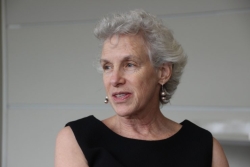
What is Class Cluelessness?, Joan Williams, Distinguished Professor of Law Emeritus and UC Law SF Foundation Chair and Director of the Center for WorkLife Law, student discussion at 3pm, Roger S. Aaron '64 Distinquished Lecture on Ethics in Law and Business at 4:30pm.
Session 8: May 24, 6:30-7:30pm
Wrap up session with Professor Bedi.
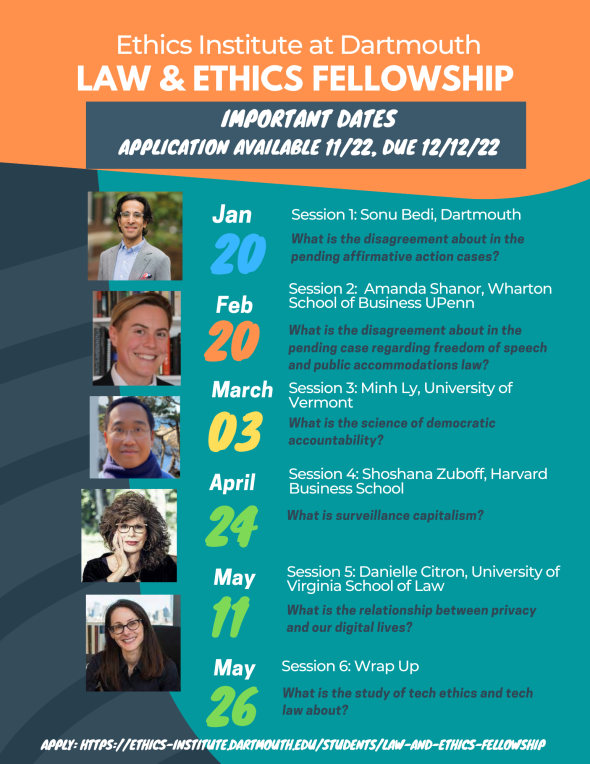
Winter Sessions
 Session 1: January 21 at 7-8:15 (Zoom) What is the disagreement about in the pending Supreme Court case regarding abortion? (Dobbs v. Jackson Woman's Health) (Sonu Bedi, Joel Parker 1811 Professor in Law and Political Science, Professor of Government, Hans '80 and Kate Morris Director of the Ethics Institute)
Session 1: January 21 at 7-8:15 (Zoom) What is the disagreement about in the pending Supreme Court case regarding abortion? (Dobbs v. Jackson Woman's Health) (Sonu Bedi, Joel Parker 1811 Professor in Law and Political Science, Professor of Government, Hans '80 and Kate Morris Director of the Ethics Institute)
 Session 2: February 11 at 7-8:15 (Zoom) What is the disagreement about in the pending Supreme Court case regarding financial assistance to religious schools? (Carson v. Makin)( Elizabeth Sepper, Professor of Law at UTexas School of Law
Session 2: February 11 at 7-8:15 (Zoom) What is the disagreement about in the pending Supreme Court case regarding financial assistance to religious schools? (Carson v. Makin)( Elizabeth Sepper, Professor of Law at UTexas School of Law
 Session 3: February 25 at 7-8:15 (Zoom) What is the disagreement about in the pending Supreme Court case regarding damages for emotional distress under civil rights law? (Cummings v. Premier Rehab) Catherine Smith, Professor of Law at UDenver Sturm College of Law
Session 3: February 25 at 7-8:15 (Zoom) What is the disagreement about in the pending Supreme Court case regarding damages for emotional distress under civil rights law? (Cummings v. Premier Rehab) Catherine Smith, Professor of Law at UDenver Sturm College of Law
 Session 4: March 3 at 5-6:15 (in-person) What is it like to argue 45 cases before the Supreme Court? Neal Katyal '91, Paul Saunders Professor at Georgetown University, former Acting Solicitor General of the United States, Partner, Hogan Lovells
Session 4: March 3 at 5-6:15 (in-person) What is it like to argue 45 cases before the Supreme Court? Neal Katyal '91, Paul Saunders Professor at Georgetown University, former Acting Solicitor General of the United States, Partner, Hogan Lovells
Spring Sessions (in person)
 Session 5: April 11, fellow meeting 3, lecture 4:30. (in-person) Enlightenment Now: The Case for Reason, Science, Humanism, and Progress, Steven Pinker, Professor of Psychiatry, Harvard
Session 5: April 11, fellow meeting 3, lecture 4:30. (in-person) Enlightenment Now: The Case for Reason, Science, Humanism, and Progress, Steven Pinker, Professor of Psychiatry, Harvard

Session 6: April 22 at 6-7:15 New research on the Constitution and ethics. Daniel Fryer, Assistant Professor of Law, UMichigan Law School
 Session 7: May 5, fellows meeting 3, lecture 4:30 Technology that Reads Minds: Understanding the Ethical and Legal Implications of Artificial Intelligence, Nita Farahany '98, Professor of Law, Duke University School of Law
Session 7: May 5, fellows meeting 3, lecture 4:30 Technology that Reads Minds: Understanding the Ethical and Legal Implications of Artificial Intelligence, Nita Farahany '98, Professor of Law, Duke University School of Law
Session 8: May 20 at 7 Fellowship wrap up (Sonu Bedi)
Session 1: Does the First Amendment protect unethical behavior?
sonu_bedi.jpg
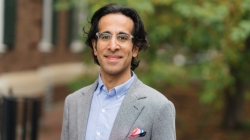
(Sonu Bedi, Joel Parker 1811 Professor in Law and Political Science, Professor of Government, Hans '80 and Kate Morris Director of the Ethics Institute)
Session 2: How should businesses respond to social media outrage directed at what their employees do-off duty?
vikram_bhargava.jpg
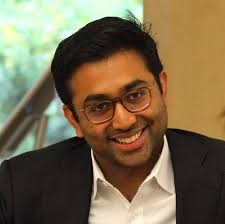
(Vikram Bhargava, Assistant Professor, Leavey School of Business, Santa Clara University)
Session 3: Should the Supreme Court overturn its precedence on religious exemptions in a pending case this term?
vincent_phillip_munoz.jpg
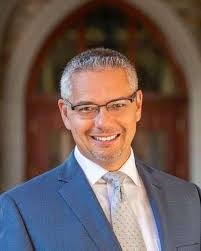
(Vincent Phillip Muñoz, Tocqueville Associate Professor of Religion & Public Life, University of Notre Dame)
Session 4: What does dignity mean under human rights law when a state sterilizes individuals without their consent?
nimu_njoya.jpg

(Nimu Njoya, Lecturer in Political Science, Williams College)
The Law and Ethics fellowship program is a two-term undergraduate program taking place over Winter 2020 and Spring 2020. This year's theme is at the intersection of ethics, law and science. The fellowship requires attendance at the events listed below, which include the public lectures, meetings with our speakers, sessions on pending Supreme Court cases, and a session on new research in ethics. As part of the fellowship, our fellows will also meet our lecturers prior to their lecture. Given the seminar style format of the fellowship meetings, we anticipate an enrollment of 15 students. The fellowship is open to all undergraduates, including first year students, from all academic backgrounds who have not participated in the program before.
WINTER 2020
January 17, Introductory Fellows Dinner with Professor Bedi 6:30-8:30pm "Do we have a free speech right to encourage suicide?"
January 27, Nina Tandon, (CEO EpiBone) Meeting with Fellows, 3:00-4:00pm. Public Lecture "Body 3.0 and the Ethics of Building with Biology", 4:30-6:00pm
February 14, Elizabeth Kamali, (Harvard Law), Fellows Dinner, 6:30-8:30pm "Is it wrong, under the Constitution, to abolish the insanity defense?" (pending case before the Supreme Court)
March 5, Mitchell Reich, (Hogan Lovells, LLC) Fellows Dinner 6:30-8:30pm "Is it wrong, under civil rights law, to discriminate on the basis of sexual orientation or gender identity?" (pending case before the Supreme Court)
SPRING 2020
April 15, Steven Pinker, (Harvard University) Meeting with Fellows, 3:00-4:00pm. Public Lecture "Enlightenment Now: The Case for Reason, Science, Humanism, and Progress", 4:30-6:00pm.
May 8, Nimu Njoya, (Williams College) Fellows Dinner 6:30-8:30pm New Research in Ethics.
May 21, 2020, Nita Farahany, (Duke Law) Lunch Meeting with Fellows, 12:30-1:30pm. Public Lecture "Technology that Reads Minds: Understanding the Ethical and Legal Implications of Artificial Intelligence" , 4:30-6:00pm
May 28, Wrap Up Session, Fellows Dinner 6:30-8:30pm
Are you interested in discussing and learning about the relationship between law and ethics? Are you interested in meeting the author of the Handmaid's Tale? Are you interested in hearing from litigants who have argued current cases before the Supreme Court? Are you interested in learning about cases involving the Eighth Amendment's ban on cruel and unusual punishment and excessive fines? Or a case involving the Establishment Clause and the separation of church and state? Are you interested in meeting with a CNN correspondent and former dean of admissions at Yale Law School? Are you interested in engaging with new research in ethics? If the answer is "yes," you should consider applying for the Ethics Institute's 2019 Law and Ethics Fellowship Program.
This undergrad student fellowship program will be a two-term program taking place over Winter 2019 and Spring 2019. It is open to all undergraduates from all academic backgrounds.
The fellowship is comprised of three parts.
Part I: Engaging with our Public Programming
Students will meet and hear from Margaret Atwood, author of The Handmaid's Tale who will be our Burt Dorsett Fellow and Asha Rangappa, Senior Lecturer at Yale, who will be our Roger S. Aaron lecturer.
Part II: The Supreme Court Workshop
Students will attend four sessions of the Supreme Court Workshop. This workshop brings scholars and practitioners to campus to discuss cases currently before the Court, cases that raise issues that are at the intersection of law and ethics. Learn more about last year's workshop.
Introduction to the Fellowship Program
sonu.jpg
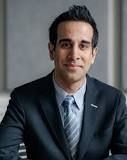
Does the Constitution protect unethical behavior? And why should we care?
Facilitated by Sonu Bedi, Hans Morris Director of the Ethics Institute on February 20, 2019.
American Legion v. American Humanist
Does the Establishment Clause of the Constitution permit the government to erect and maintain a Latin cross?
Facilitated by Neal Katyal, Professor of National Security Law, Georgetown University Law Center on, March 1, 2019. Katyal is one of the lawyers in this case.
Timbs v. Indiana
hottot1.jpg
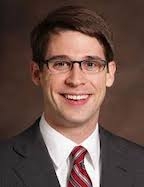
Does the ban on excessive fines in the Eighth Amendment apply to states?
Facilitated by Wesley Hottot, Attorney for the Institute of Justice, March 28, 2019. Hottot argued this case before the Court, his oral argument is here::https://www.oyez.org/cases/2018/17-1091
Madison v. Alabama
norrinda.jpg
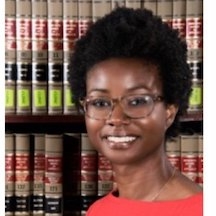
Does the ban on cruel and unusual punishment in the Constitution prevent the state from executing a prisoner who no longer remembers committing the crime?
Facilitated by Norrinda Hayat, Associate Clinical Professor of Law and Director of the Civil Justice Clinic at Rutgers Law, April 29, 2019.
Part III: Engaging with New Research in Ethics
"Epistemic Injustice and Workplace Domination"
windresize.jpg
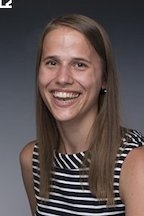
Facilitated by Nina Windgaetter, Lecturer in the Department of Philosophy, University of New Hampshire, April 9, 2019.